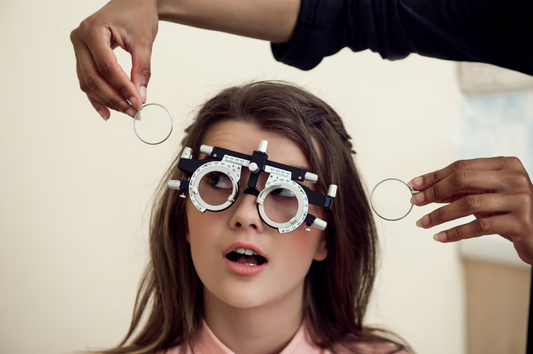Dry eyes are a common condition that affects millions of people worldwide. While the most common symptoms of dry eyes include dryness, irritation, and redness, blurry vision is also a possible symptom. Blurry vision can be a concerning experience, and it is important to understand the link between dry eyes and blurry vision, as well as the causes, symptoms, and treatments for both.
Causes of Dry Eyes
Dry eyes can be caused by a variety of factors, including environmental factors, health conditions, medications, and aging. Environmental factors, such as exposure to wind, smoke, and dry air, can cause dry eyes. Health conditions, such as rheumatoid arthritis and Sjogren's syndrome, can also cause dry eyes. Certain medications, such as antihistamines and antidepressants, can also contribute to dry eyes. Finally, aging can cause a decrease in tear production, leading to dry eyes.
Symptoms of Dry Eyes
The most common symptoms of dry eyes include dryness, irritation, and redness. However, blurry vision is also a possible symptom of dry eyes. Other symptoms of dry eyes may include sensitivity to light, a gritty sensation in the eyes, and excessive tearing.
Link between Dry Eyes and Blurry Vision
Dry eyes can cause blurry vision in a few different ways. When the eyes are dry, the surface of the eye can become uneven, causing light to scatter and leading to blurry vision. In addition, dry eyes can cause inflammation and damage to the cornea, which can also lead to blurry vision. The severity of blurry vision in relation to dry eyes can vary, with some people experiencing mild blurriness and others experiencing more severe blurriness.
The effects of blurry vision on daily life can be significant. Blurry vision can make it difficult to read, drive, and perform other daily tasks. It can also cause headaches, eye strain, and fatigue.
Diagnosis of Dry Eyes and Blurry Vision
A diagnosis of dry eyes and blurry vision can be made through a comprehensive eye exam. This exam may include a tear production test, a visual acuity test, and a refraction test. Your eye doctor may also examine the surface of your eye using a special dye to look for signs of damage or inflammation.
Treatment of Dry Eyes and Blurry Vision
The treatment of dry eyes and blurry vision will depend on the underlying cause. In many cases, artificial tears or prescription eye drops can help relieve the symptoms of dry eyes and improve blurry vision. Lifestyle changes, such as taking breaks from digital screens and staying hydrated, can also help prevent dry eyes and blurry vision. In more severe cases, surgery may be necessary to correct underlying eye conditions or injuries.
Prevention of Dry Eyes and Blurry Vision
Preventing dry eyes and blurry vision can involve making a few simple lifestyle changes. Protecting your eyes from environmental factors, such as wind and smoke, can help prevent dry eyes. Wearing protective eyewear during activities that can cause eye injuries can also help prevent dry eyes and blurry vision. Eye exercises, such as blinking and focusing on distant objects, can also help prevent dry eyes and improve eye health.
Conclusion
Dry eyes and blurry vision can be a frustrating and concerning experience. It is important to seek treatment for these conditions, as they can impact daily life and lead to more serious complications. By understanding the link between dry eyes and blurry vision, as well as the causes, symptoms, and treatments for both, you can take steps to protect your eye health and maintain clear vision.
FAQs
- What are the common causes of dry eyes?
- Common causes of dry eyes include environmental factors, health conditions, medications, and aging.
- Can dry eyes cause permanent damage to vision?
- While dry eyes can cause damage to the cornea and other structures of the eye, it is unlikely to cause permanent damage to vision if treated promptly.








